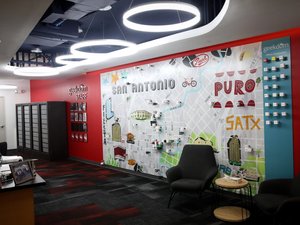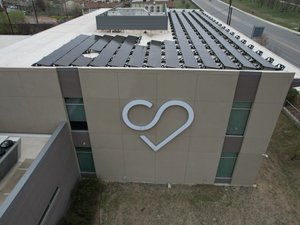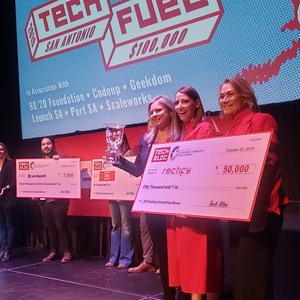Women in STEM are on the rise.
The number of women in STEM grew 31% between 2011 and 2021, according to the National Center for Science and Engineering Statistics, an agency of the National Science Foundation.
At the same time, the North American robotics market set an all-time record for sales last year, according to the Assocation for Advancing Automation. Now, there is more opportunity than ever for women to succeed in robotics.
"Many of our chapter members know what it is like to be the only woman in the room at one point or another, but that is all changing. I believe that the perception of robotics being a 'boys-only' industry will evaporate over the next few years," said Stephanie Garcia, Business Development and Communications Specialist at Port San Antonio and founder of San Antonio Women in Robotics.
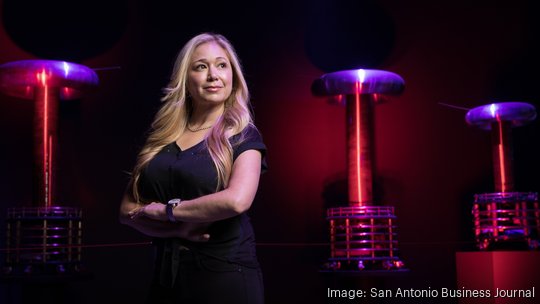
Women in Robotics is an international nonprofit organization and global online community connecting women who work in and aspire to work in robotics.
The San Antonio chapter of WiR is the first chapter in Texas. Twelve members strong and growing, it focuses on three main pillars: connect, advance and inspire.
"San Antonio has wonderful women who've been creating community online through the WiR mentoring program and in real life through the regular events and the work that SA WiR does in promoting the community," said Andra Keay, managing director of Silicon Valley Robotics and founder of Women in Robotics. "Whenever SA WiR publicizes the work of women in robotics, it also speaks to the innovation and commercialization of robotics that's happening in the San Antonio region."
The San Antonio Business Journal spoke with three SA WiR members from three local robotics companies about what got them interested in the field, what challenges they've faced and how they've been able to succeed and thrive.
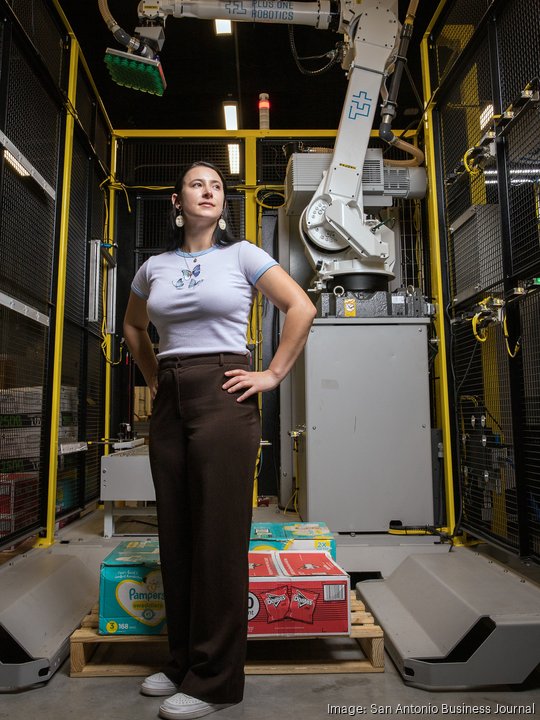
By chance
Lydia Unterreiner said it was happenstance that she ended up in robotics.
"I didn't know what I wanted to do when I started going to college," she said. "I took a couple of classes. One of them ended up being Intro to Software Development, and I enjoyed it."
Unterreiner said it wasn't until after college when she began working for an engineering firm that her passion for robotics sparked.
"After that, I was like, 'This is it. This is what I want to be,'" she said.
For two years, Unterreiner has worked as a software developer at Plus One Robotics. In her client-facing role, she identifies and solves product issues for customers.
Unterreiner said she's been lucky to interact with "a lot of males in the industry that have, for the most part, treated me like their equals."
Despite her supportive work environment, Unterreiner admits she feels pressure to "have more facts and documentation" than her male counterparts. But keeping a paper trail has its advantages, she said.
"I don't feel like my word is necessarily taken at face value," she said. "That can be a bit frustrating, but it's also just a good habit for me. Now [that] I'm documenting everything I do, it makes it so much easier for me to go back because I'm not only keeping a record of my work and what I'm doing and saying but also the people involved in my projects."
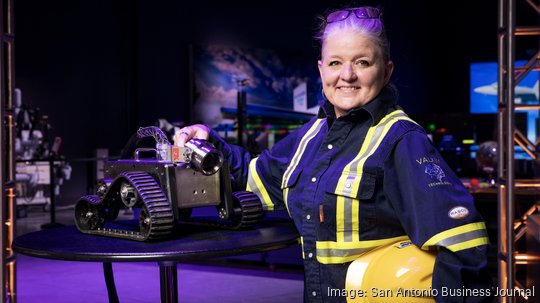
Safety first
Kimberley Hayes' latest idea for a robot started with a soda crate.
“I was tasked [with] developing a robot to do pontoon inspection on floating roofs,” she said. “On a Friday, I went to my garage and grabbed a red Coca-Cola crate, went to Harbor Freight, bought two drills, teed it up to a pancake pump and, in three days, it moved.”
Hayes is the co-founder of Valkim Technologies LLC, a technology company for the inspection industry. She created Titan, a robot prototype that can perform pontoon inspections on the floating roofs of storage tanks. Many crude oil storage tanks, for example, are equipped with floating roofs to minimize evaporation loss. The EPA requires that they be inspected at least once per year.
Floating roof inspections are inherently dangerous. Two workers die every week in the U.S. on average in confined spaces accidents, and of the 1,030 worker fatalities from 2011 to 2018 that involved a confined space, 205 occurred in tanks, bins or vat interiors, and seven deaths occurred in oil storage interiors, according to the U.S. Bureau of Labor Statistics.
Hayes has been involved in non-destructive testing, a testing and analysis technique to evaluate the properties of high-risk, high-hazard materials, components, structures or systems, for the past 25 years.
In 1997, she began working for W.R. Grace, a specialty chemical and materials company. Hayes recalled how she felt in the beginning of her career as one of the few women in the field.
"My primary market at that time was aerospace, so you had a high echelon of intelligent male engineers in the room," Hayes said. "You walk in, and you have five minutes to establish yourself as somebody who's actually there to work and get stuff done."
While Hayes didn't get into specifics about her experiences, she did allude to "Napoleon people," who are "threatened when a woman has a role above them, and they find ways to really degrade them."
Hayes said what makes women successful in the industry is "being able to roll your sleeves up and jump right in, hard hat, steel toes, and not accept some of the inferences."
"Don't be offended by it, nor play into it," she said.
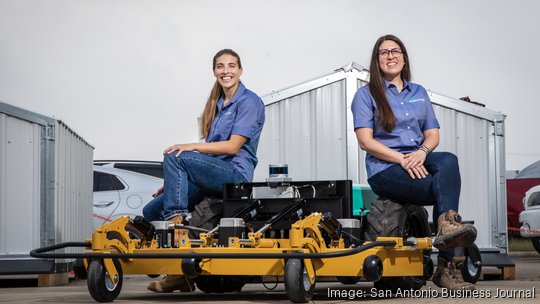
Team players
Katherine Glasheen and Ashley Leggett were once separated by oceans. Now, they're coworkers at Renu Robotics.
Glasheen is a senior software engineer and Leggett is a mission control manager. Glasheen's responsibilities include developing the software and passing it off to Leggett, who deploys it to the bots.
As an undergraduate, Glasheen studied biomedical engineering "because I liked math, and I thought people who like math and science should be doctors."
"Turns out it wasn't for me. [I] hated chemistry," she said. "So, I tried aerospace, and through my experiences, got to work in labs with drones."
Leggett studied petroleum engineering in college and in 2016 went to work on an oil field in Qatar, where she would remain for the next five years. There, she developed a new logging tool, which sparked her interest in research and design.
"I fell in love with the whole technology development process, and wanting to expand my horizons outside of the oil industry, I got into renewables, which led me to Renu Robotics," she said.
Leggett faced challenges as a female engineer living in the Middle East.
"For me a lot of the time, it was purely, 'You're female, so you shouldn't be here. You shouldn't be sitting at this table with us,'" she said. "That took a lot of courage for me to stand up and say, 'No, you are going to listen to what I have to say.'"
Leggett said she even invited those who doubted her to run her off their rig, "But I never got run off, because they needed me to perform the job."
Back in the U.S., Glasheen faced a different kind of challenge.
"I was constantly battling with, 'Do I belong here? Are people going to want me in their study group? I didn't get a 90% and these people did. Am I dumb? Am I at risk of failing?'" she said.
Despite moments of self-doubt, Glasheen noted she always had female mentors to lean on.
"One thing that I like about the Women in Robotics group is that we're reaching young women and, hopefully, providing them with mentorship and serving as an example for these young people to see and know that they too can pursue these careers," she said.
